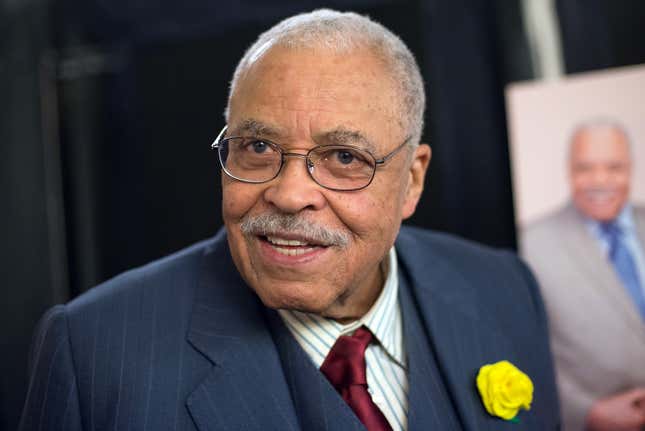
Hollywood royalty James Earl Jones, who was known for his iconic voice and dignified acting career, died Monday (Sept. 9) at 93. Supporters have taken to the internet to express their condolences and reminisce on moments from his extensive career.
However, many Black folks seem to be conflicted after several disheartening interview clips resurfaced of the actor making comments that disparage Black women.
In one undated CBS News interview, while sitting next to his first wife Julienne Marie — whom he divorced in 1972 — Jones is asked why he doesn’t date Black women, to which he responds calling Black women “uptight.” He continued saying Black women were “goin to a more militant attitude about their own identity” citing that because of slavery, Black women were becoming more masculine.
Now, there’s some truth in what Jones said. Slavery did indeed have generational affects on the dynamic relationship between Black women and Black men. But Jones failed to correctly articulate the true legacy of slavery, and instead, he came across as misogynistic and flat out anti-Black.
On X, formally Twitter, user @BriMalandro wrote “That’s sad that man died even though he ain’t like black women like that,” which led to a series of questions concerning what he actually said.
Later in life, Jones stirred up trouble again between himself and the Black community after telling an interviewer he’s “not necessarily bonded to being Black.” He continued saying “I don’t have to act out being Black.” In a separate interview, Jones even called his own grandmother, a Black woman, “the most racist person” he ever knew in a BBC World News interview.
Like his peers Sidney Poitier and Harry Belafonte, “The Great White Hope” actor continuously received backlash concerning his views of Black women and the Black community during the height of the Civil Rights Movement. Even after his death, Black women remain completely outraged by Jones’ words, with one X user saying “Disrespect Black women and it’s etched in my brain forever.”
Another user, a Black woman, wrote about how “heartbroken” she was while watching one of the interview clips. She wrote that Black women “can’t catch a break.”
It’s clear Jones’ decades-spanning comments hurt many Black women and other members of the community alike. And even though the actor has died, many believe he still must be held accountable for his past remarks.
The question that follows, however, is will this taint how the Black community views “The Lion King” actor’s legacy?

